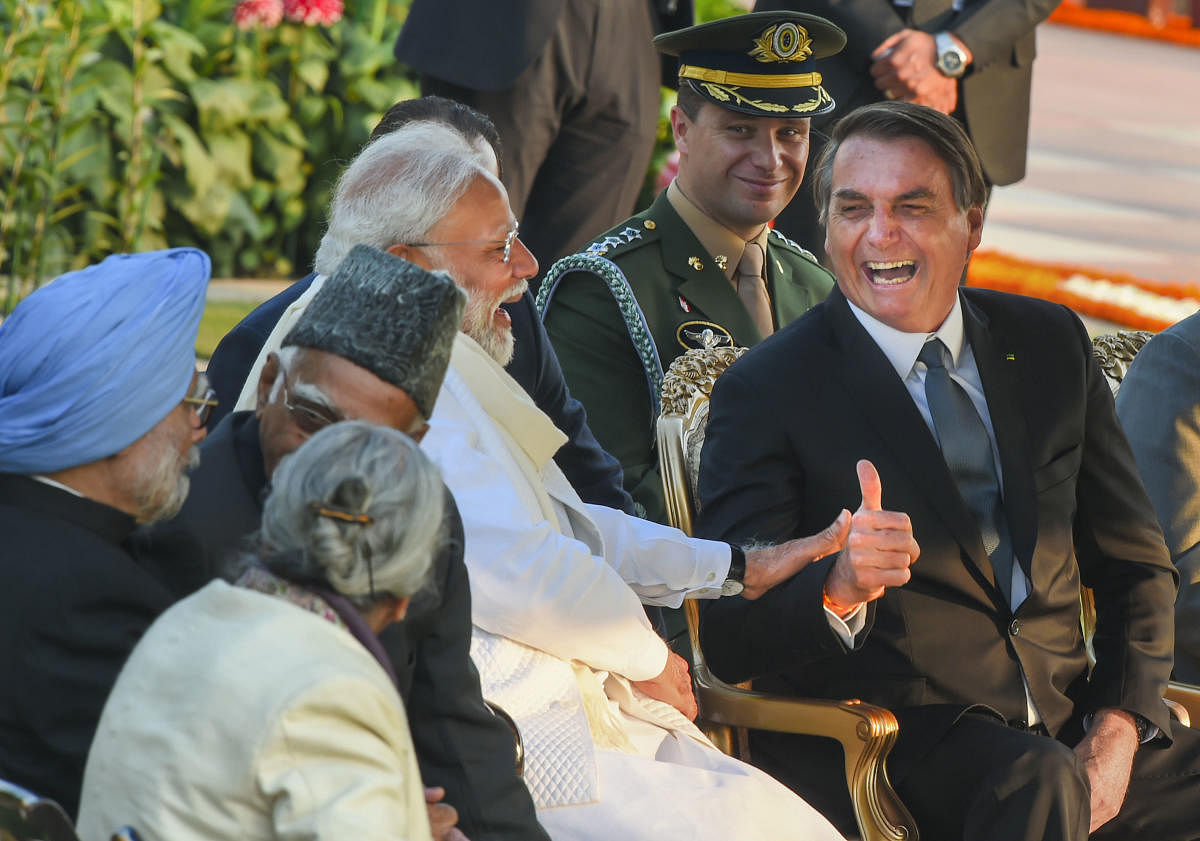
During President Jair Bolsonaro's recent visit to New Delhi, India and Brazil took several steps to take the strategic partnership that they entered into in 2006 to the next level. The two sides agreed on a Strategic Action Plan to improve political and strategic coordination, and strengthen cooperation in areas including trade, civil aviation, space, consular and legal issues, etc. They signed 15 agreements relating to oil and gas, mineral resources, traditional medicine, animal husbandry, bio-energy and trade and investment. With the signing of an Investment Cooperation and Facilitation Treaty, Brazil has become among the first countries to sign a Bilateral Investment Treaty (BIT) with India. It may be recalled that in 2015, the Narendra Modi government brought in a new ‘Model BIT.’ India and Brazil also set a bilateral annual trade target of $15 billion, to be reached by 2022.
India and Brazil already engage in robust cooperation. They work together as part of the Brazil-Russia–India-China- South Africa (BRICS) initiative and are active in the India-Brazil-South Africa (IBSA) grouping as well. Both are emerging economies that are poised to become developed countries and hence their voice and joint efforts at the global level carry significant weight. Both countries also aspire to become permanent members of the United Nations Security Council and are part of the Group of Four countries—the other two being Japan and Germany—that are coordinating efforts to democratize the UNSC. While India-Brazil cooperation at the multi-lateral level seems impressive, it has achieved little in substantive terms. Additionally, their bilateral bonding is way below par. Bilateral trade, which was worth $1.2 billion in 2004 rose to $8.2 billion in 2018-19. Not only was the increase in trade in this period disappointing but also, India’s current trade with Brazil is a mere pittance compared to the $110 billion trade between Brazil and China.
Bolsonaro was the chief guest at India’s Republic Day celebrations this year. India has generally accorded this honour to heads of state of those countries with which it is seeking enhanced cooperation. By according Bolsonaro this honour, India has signalled the priority it proposes to accord to Brazil in its foreign policy in the coming years, although critics say perceived ideological affinity between Modi and Bolsonaro had a role to play. The Ministry of External Affairs must follow up now with robust implementation of the Strategic Action Plan. A BBC opinion poll conducted in 2013 revealed that Indians and Brazilians hold rather negative perceptions of each other. This needs to change for trade and investment to grow. People-to-people contact and cultural exchanges should be encouraged to change negative stereotypes we have of each other.